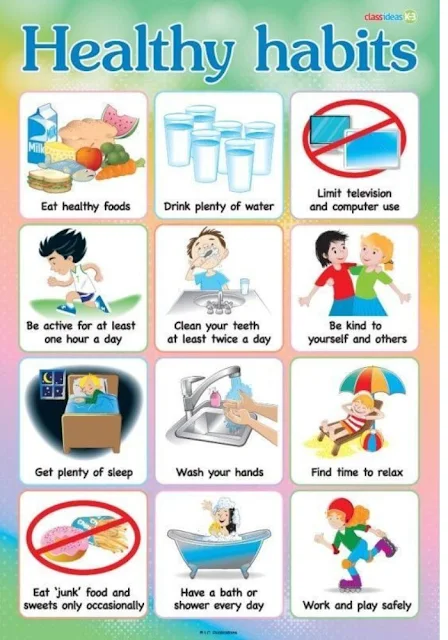[ MID-ARTICLE AD PLACEHOLDER ]
Start Your Journey to a Healthier You
In today’s fast-paced world, maintaining a balanced diet and proper nutrition can feel like a constant struggle. Whether you're trying to lose weight, improve energy levels, or simply feel better in your daily routine, the foundation of lifelong wellness begins with what you put on your plate. This comprehensive guide will walk you through everything you need to know about balanced nutrition, practical food choices, and sustainable wellness habits you can start today.
What is a Balanced Diet and Why Does It Matter?
The proper ratios of carbs, proteins, fats, vitamins, and minerals are all part of a balanced diet. It keeps you at a healthy weight, boosts your immune system, fuels your body, and promotes cognitive function. Tiredness, chronic sickness, and poor mental health can result from neglecting diet. The goal of a healthy diet is to nourish, not to restrict.
The Five Core Components of a Balance Diet
1.Carbohydrates: For sustained energy, choose for whole grains like quinoa, brown rice, and oats.
2.Proteins: To grow and repair tissues, eat lean meats, beans, eggs, and dairy products.
3.Fats: Nuts, seeds, avocados, and olive oil are good sources of healthy fats that are vital for heart and brain function.
4.Vitamins and Minerals: To obtain all of the necessary micronutrients, eat a range of fruits and vegetables.
5.Water: Maintain proper hydration for a healthy metabolism and general bodily functions.
Smart Nutrition Tips for Everyday Life
- Have a breakfast high in protein to start the day.
- Choose herbal teas or infused water instead of sugary beverages.
- Weekly meal planning to cut down on bad food selections
- Examine nutritional labels prior to purchasing packaged goods.
Explore Our Meal Planning Tool
Use our
Smart Meal Planner Tool to create personalized diet recommendations and plan your meals in a matter of minutes.
Best Supplements to Fill Nutritional Gaps
When nutrients are insufficient, supplements might be helpful, but food should always be your first option. Omega-3 pills and multivitamins are frequently advised.
Affiliate Pick: High-Quality Omega-3 Supplement
Lifestyle Habits That Support Good Nutrition
✓Obtain a minimum of seven hours of restful sleep.
✓Regular exercise improves metabolic health and appetite.
✓Use meditation or mindfulness to reduce stress.
✓Maintain a food journal to prevent emotional eating.
Common Myths About Healthy Eating
- Myth: Eating carbs makes you fat
- Truth is that energy requires whole carbohydrates like quinoa and oats.
- Myth: Eating fat damages your heart
- Truth is that healthy fats increase HDL (good) cholesterol and decrease inflammation.
Affiliate Pick: Natural Plant-Based Protein Powder
Explore More Wellness Topics
CTA: Take the First Step Today
Get a customized food plan and fitness tracker right away when you sign up for your free wellness plan.
Frequently Asked Questions
1. How can I determine whether my diet is well-balanced?
After a week of food tracking, evaluate the diversity, portion sizes, and nutritional value of your meals.
2. Is it possible to keep up a nutritious diet on a limited budget?
Yes, you can eat healthily on a budget by cooking at home, shopping in bulk, and selecting local produce.
3. Are days when cheating are acceptable?
Of course. Your gains won't be undone by one meal. Most important are consistency and balance.
Empowered Living Through Better Nutrition
There is no one-size-fits-all approach to a healthy diet. It all comes down to making deliberate decisions every day that suit your body's requirements. Begin modestly, maintain consistency, and welcome the path to long-term well-being.






Comments
Post a Comment
If you have any doubts, Please let me know